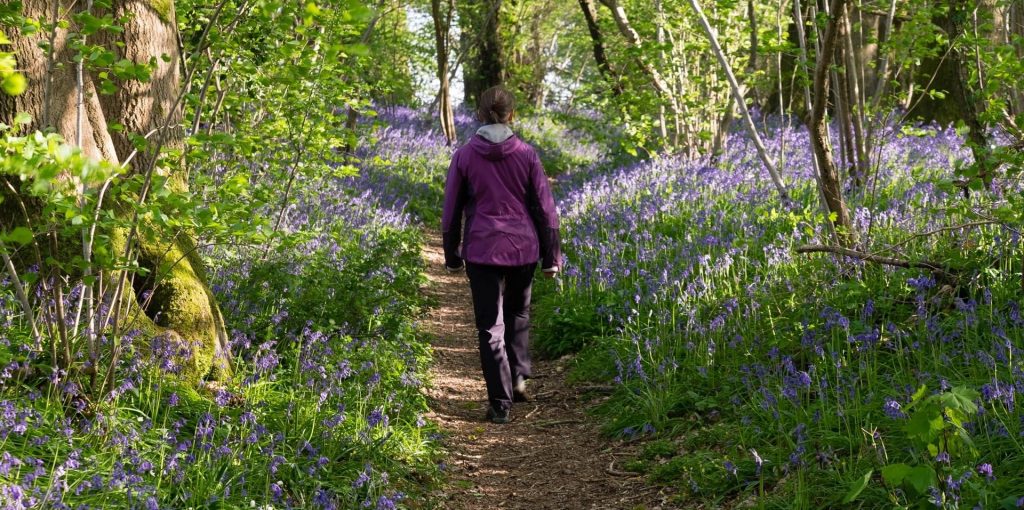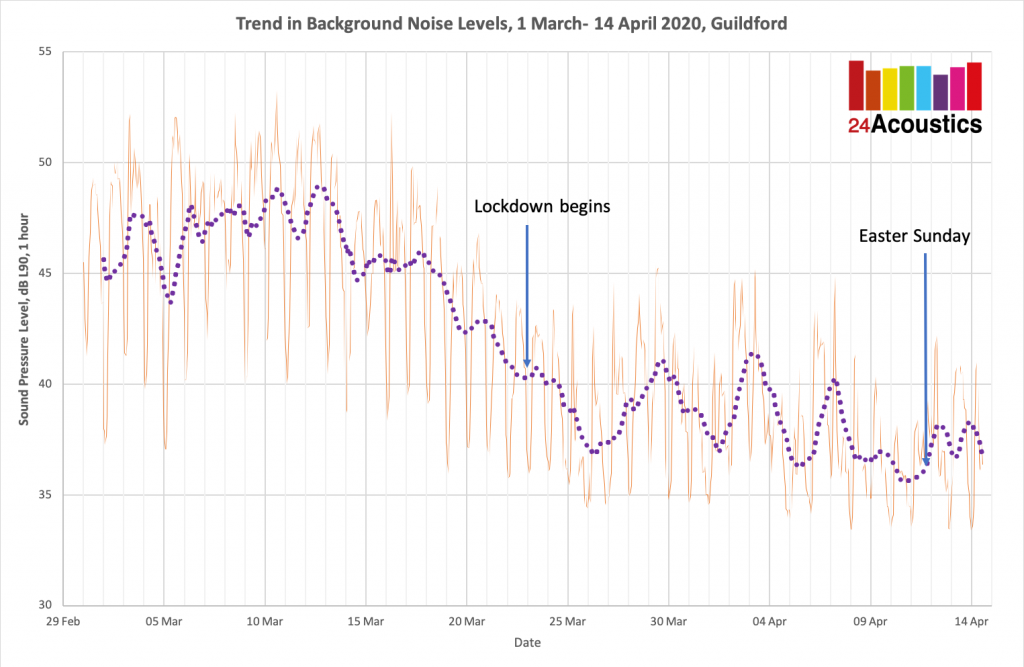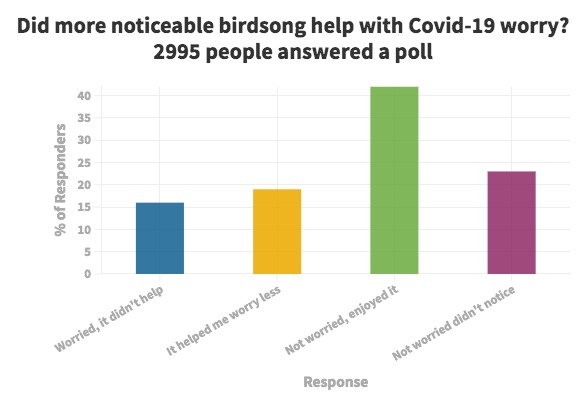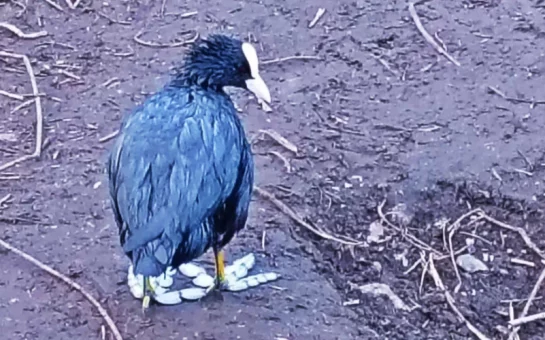By Kate Pounds
June 15 2020, 19.00
Follow @SW_Londoner
Birdsong brought joy and helped people overcome lockdown anxiety, an ecologist and environmental psychologist explain.
Amid the grief, fear, and isolation of the UK lockdown, many people found peace and joy in observing spring.
Relieved of the need to compete with humans for space and sound, and unaware of our crisis, wildlife bred, fed and grew, and many of us had time to enjoy watching and listening.
This spring could be the best time ever to listen to birdsong https://t.co/w1jc2VaXSO
— RSPB News (@RSPBNews) March 27, 2020
On BBC SpringWatch Chris Packham described birdsong as an “orchestra of therapy,” and for many, that’s what it has been.
“I call it the Natural Health Service,” said Rural Advisor for the Country Land and Business Association Megan Lock.
“Because it really does boost your spirit. I go to the woods for peace and relaxation, to free my mind and find my soul. It’s my love, and my world.”

At home with her newborn first child, Megan explained the background noise level dropped so much during lockdown she was able to hear species of birds in the garden she hasn’t noticed before.
“It was amazing to hear a cuckoo calling, I have never heard it before from my house because of the noise from the A303.”
She added: “Lockdown was such a devastating time for humans, but because it was breeding season it was a great opportunity for nature.
“I like to think people are talking about nature more, acknowledging it and being more aware of what’s around them. I just hope we can carry it forward.”
Sadly it was the roar of the motorway, which seemed louder than before I hear the silence of lockdown, that woke me, drowning out the birdsong. I had enjoyed the lack of traffic & the power of the birds’ chorus.
— lizziwake (@liziwake) May 26, 2020
But as the government continues to ease restrictions and people head back out on to the streets, pilates teacher Liz Wakelin is already missing the peace of lockdown.
“There was a joy in suddenly seeing and hearing the world as it could be,” she said.
“It was much easier to pick out the individual birdsongs, because you didn’t have to filter it through a background noise of traffic
“It made such a difference.
“I could feel my shoulders start to tense up as soon as the road noise returned. My stress levels went up phenomenally.
“I have walked miles, and they have been wonderful wonderful miles.

“Apart from the tragedy of all those lost, the lives disrupted, and the other knock on effects of this crisis, there was an outpouring of joy among my friends that maybe this was the beginning of a resurgence of hope that the natural world could recover.”

“Many people may have noticed that birdsong appeared louder than normal,” said Reuben Peckham, director of engineering consultancy 24 Acoustics
“Ambient noise levels were significantly lower so birdsong was more noticeable, which was a very pleasant side effect of the lockdown.”
24 Acoustics help with acoustic design of buildings and advise on noise pollution, and they continuously record audio on intelligent noise monitoring systems.
Reuben Peckham introduces the intelligent noise monitoring system in 20 seconds
“Studies have linked noise pollution to cardiovascular disease, hypertension, and other health problems,” Mr Peckham added.
“But it’s a secondary pollutant, whereas breathing in too much bad air will make you unwell quite quickly.”
Environmental psychologist Dr Eleanor Ratcliffe explained exposure to excessive levels of traffic and aircraft noise is also associated with increased anxiety and annoyance, lower life satisfaction, and a significant negative impact on learning.

There’s a much larger body of work on the negative impact of traffic, aeroplane, and industrial noise than the positive impact of birdsong on the human brain.

Being in nature and hearing sounds like birdsong can help people recover from everyday stresses like a hard day at work.
Most people find birdsong makes them feel happier, calm and relaxed, with the most positive effect seen from musical or melodic birdsongs, with pattern and structure, but also some complexity. They offer a little distraction without capturing attention too much.
Some people have happy childhood memories of hearing birdsong in parents’ or grandparents’ gardens which bring them joy when they hear birdsong as an adult.
Stressed people experiencing sounds and pictures of nature recover more quickly and completely than others, showing wakeful, calm, brain activity, lower and more steady heart rates, lower blood pressure, and less sweating.
“Why we show these responses is something we are still working on in our field,” she said.
In a Twitter poll, 39% of people said they either didn’t notice birdsong in lockdown or it didn’t help them worry less.
Some experienced #anxiety during #Lockdown others enjoyed #StayingHome. @24Acoustics recorded #Birdsong more audible than usual. Which best describes the relationship between your feelings and more easy-to-hear birdsong during lockdown?
— Kate Pounds (@KatePounds) June 3, 2020
Some people have negative associations with bird sounds and find them stressful, Dr Ratcliffe explained.
The screechy, loud or rough sounds of crows or magpies might be associated with aggression, and superstitions, folklore and stories often represent them as threatening or scary in some way.
It’s also about whether listening to nature is compatible with who you are, and some people just want quiet when they are feeling stressed.
Others may not have gardens or easy access to outside spaces.
“There is also a hierarchy for what people need,” said Dr Ratcliffe.
“Environmental positives are silver linings in a cloud, but life stressers like losing your job or losing a partner, and being anxious about the future, are going to have a bigger effect.”
She added: “I think it’s important from an environmental perspective that we embrace the opportunity to slow down and to think about what really matters.
“Having more time and not being busy commuting have been really nice, I’ve been able to attend more to my plants.”
Please complete this survey to generate more data on this topic.)




